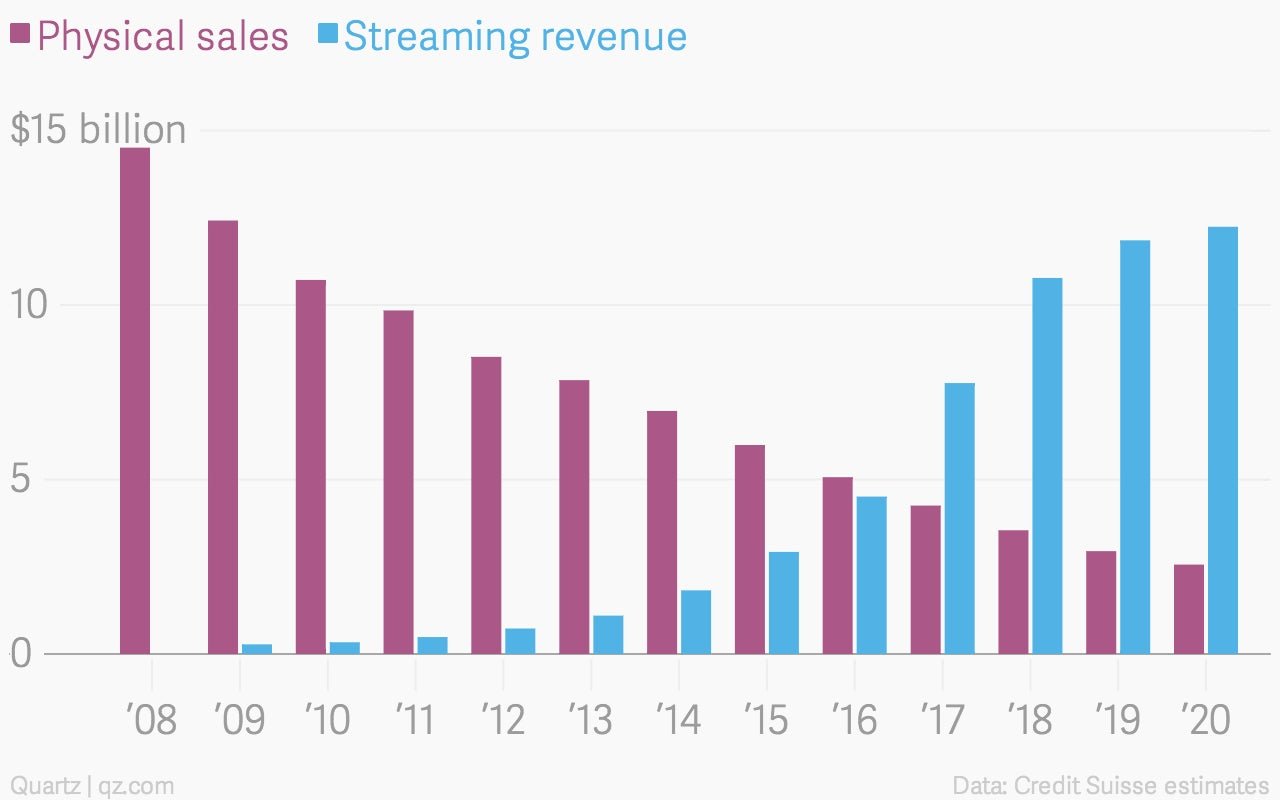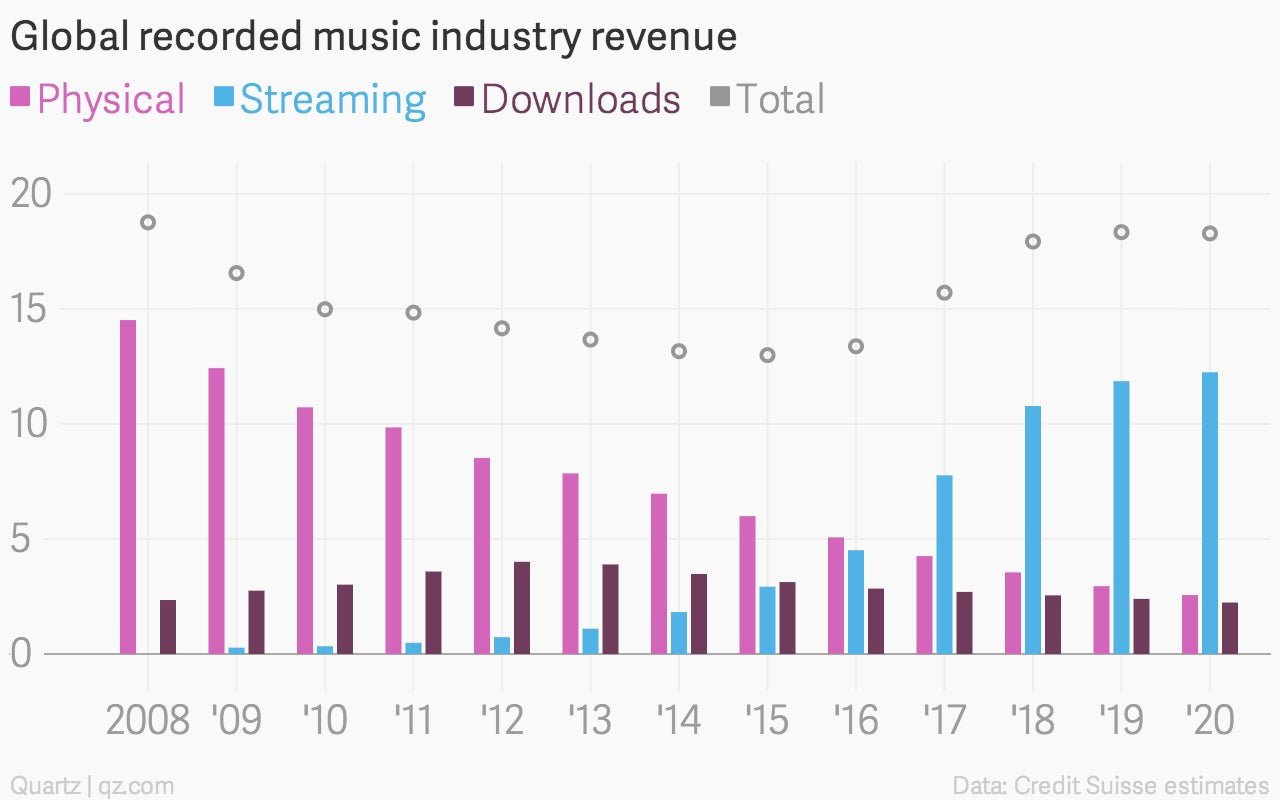Why music must embrace the latest wave of industry disruption
Music was the first corner of the entertainment business to be truly disrupted by the internet. And this relentless disruption has come in multiple waves that have pounded revenues for labels and artists.


Music was the first corner of the entertainment business to be truly disrupted by the internet. And this relentless disruption has come in multiple waves that have pounded revenues for labels and artists.
First, (illicit) file-sharing smashed CD sales. Then legitimate downloads (i.e. iTunes) destroyed the industry’s “bundle,” as consumers bought individual songs rather than full albums. Now the era of all-you-can eat streaming services has arrived, and it’s threatening to render digital downloads obsolete.
So there is plenty of negativity surrounding the recorded music business at the moment. But now, there may finally be grounds for optimism—and not just because vinyl sales are making a comeback!

In fresh research this week Credit Suisse argues that global recorded music industry could soon return to expansion, driven largely by rising adoption of subscription-based streaming services.
One simple way to think about this: at the industry’s peak, back in 1999, the average consumer spend on recorded music was about $64. These days its closer to $50. The average cost of a Spotify subscription is around $120. So, if subscription based streaming music goes mainstream—it is likely to get a big lift if and when Apple starts promoting/integrating Beats Music, which it bought earlier this year—plenty of people will be spending more on music than they ever have before, for access to more music than they’ve ever had before. And suddenly, the music business will have a new growth engine.
That’s why Credit Suisse thinks the music industry will hit a bottom next year, and then resume growth.

This is already happening in places where streaming is mainstream, like Sweden, home of Spotify. Credit Suisse has previously forecast that global paid-streaming customers will more than quadruple from less than 40 million this year to nearly 160 million by 2020. Deezer told the investment bank that it believes the total market for streaming music subscriptions could be as big as 500 million customers. Spotify reckons up to 60% of consumers in its target markets don’t spend anything on music at all.
If this is all true then it’s time for the music industry to embrace, rather than fear, the streaming music industry. Which, particularly among forward thinking artists, already seems to be happening.